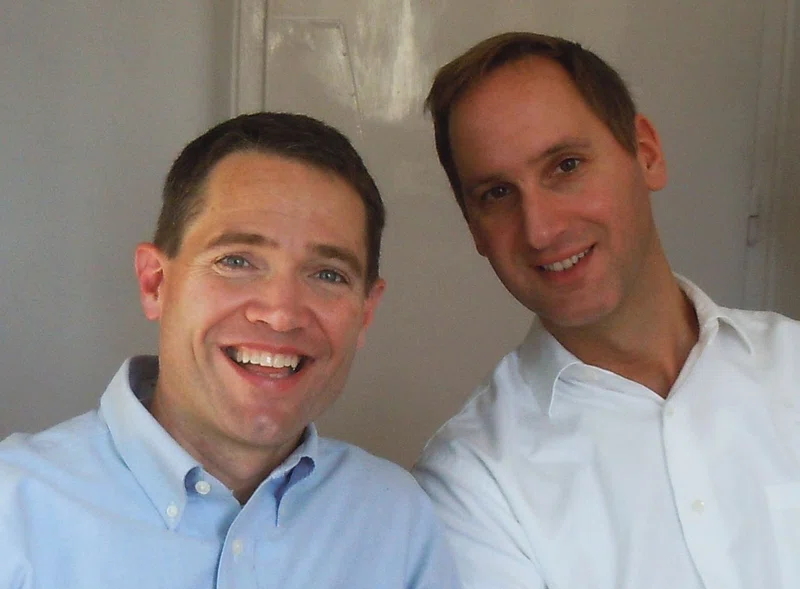Professors Dr. Scot Wallace and Dr. Robert Pichler are teaching at IBS Vienna.
What do you teach in Vienna?
Dr. Scot Wallace: I teach Business Data Analysis. Our goal is to learn to analyse a business using both internal and external financial reports. We use statistical tools to determine whether certain data relating to the company is. Finally, we study strategies of pricing and costs which companies use to gain financial advantages over others. So, that is a lot of numbers but it helps us to analyse and understand past, current and possibly the future of a company.
Dr. Robert Pichler: The title of the module I teach is Business and its environment. That is a typical introductory business class with the goal that students understand that a business or organization is always embedded in an environment. This environment constitutes politics, economy, investors, owners, employees, the local community, so you cannot just look at an organization in an isolated way but all decisions that you take as a manager have impact on those different groups. So it is a very interesting class because you can look at so many different things and you can have great class discussions.
What difference do you see in teaching for IBS Vienna compared to your earlier teaching experiences?
Dr. Scot Wallace: The big difference is how open the students were to interaction. Maybe because we encourage them. So, if we talk about a subject, I always ask, “What is it like in China, in Russia, in Hungary, etc.” Even if the student is shy, the class is small enough to know the student’s names and to find out about each student’s personality. This interaction is different compared to my other, larger classes where I always have to come up with new ways to get the students involved. But in IBS, the students interact so much in class that I did not need to do that.
Dr. Robert Pichler: First of all, I am the only Austrian in this group, I have never met such an international group of students, and that made it interesting for me, from the very first moment. Second, the students picked their programme voluntarily, they exactly know what they want to get out of it. That makes the atmosphere totally different in the classroom. They are eager to learn, they are eager to share their past experiences: this makes the entire class setting much more interesting than in my other job, which I also love, where students are mainly Austrians, they are there because they have to be there, and it is not entirely voluntary. So I would say, the difference is having an international group and having people who know exactly what they want to do.
What is the most challenging for you in this set-up and atmosphere?
Dr. Robert Pichler: I would not say it is challenging but what is a bit difficult, may be, the scheduling. Because the students are in Vienna for a relatively compact period of time so our didactics have to kind of fix the block. We need to structure our instruction in a way that keeps everyone motivated and we cannot just lecture, we need to have students to work, do group presentations, show short videos, a quiz… we need to change our teaching mode to keep up the motivation.
Dr. Scot Wallace: In the other institution where I work I have more content and grading freedom. I can determine the needs of a group and can decide that, maybe, a presentation, rather than an exam, would be a better assessment mechanism. IBS has more of a fixed set-up. In this class here at IBS, I was given the goals of each class meeting and the students need to write a paper for their grade. Usually I have more freedom in this respect, so the challenge was for me to fit in to this very stringent structure.
Whom would you recommend this school to enroll in the future?
Dr. Robert Pichler: Every person who wants to get an academic degree should be self-motivated – they should not do it because I recommend it. I could help them, I can tell them that this might be something you should look at, but primarily the decision should come from the students.
Dr. Scot Wallace: Some of my bachelor students, at my other institution, ask me if they should stay and do a master’s degree in Vienna or rather go abroad. I always suggest they go abroad. Yet, if that is not an option for a particular student, for whatever reason, then the IBS Master's option is optimal. I suggest it to anybody who wants to study in English and have a UK degree.
The students told how much fun they have at school. How about you?
Dr. Robert Pichler: I also experience that, they share food, they order pizza and have lunch in the library. This is possible because class size is very small. We really have the advantage that it is a very small programme with a pioneering spirit.
Dr. Scot Wallace: We laugh a lot. Like, when I decided one beautiful day to ride my bike to school. I forgot to put my street shoes in my backpack, so I was forced to lecture without my shoes or socks. To add to the already funny situation, I also forgot about my lunch. So, the students offered food to their hungry, shoeless professor.
